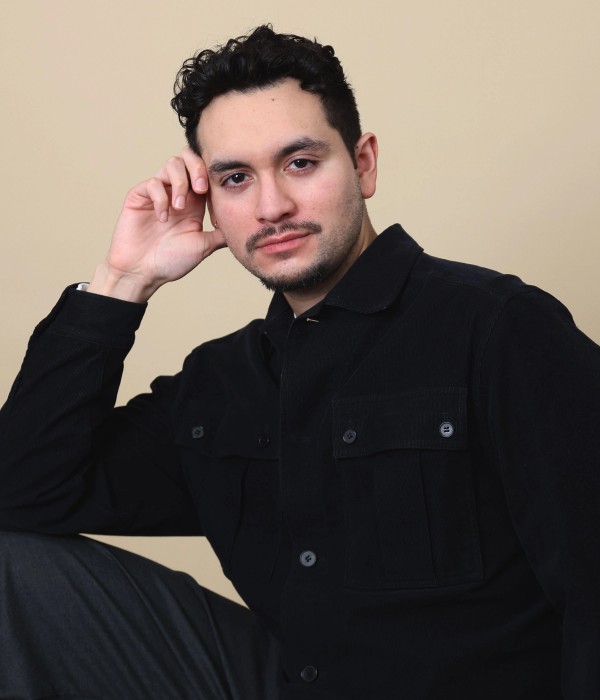Carlos Valdivia: Saddling Up for "Method Cowboy"


The idea for the film was sparked by the long-standing dynamic in Hollywood where straight actors are frequently awarded for Queer roles, while Queer actors face barriers to the same opportunities. Valdivia was curious about how that dynamic plays out in a world where sexual fluidity is becoming more visible. “Even in my own circle of friends, I’ve noticed a shift in straight-identifying friends who are now open to exploring their sexualities in ways that defy rigid labels,” he explains. “That evolving reality is what I wanted to explore in this film. What happens when an actor’s ‘performance’ of Queerness bleeds into something real? Where is the line between acting and becoming?”
While the premise borders on absurd, Valdivia wanted the characters to stay grounded and real. “Satire is one of the best ways to challenge conventional thinking and cultural hypocrisy,” he says. “There’s a version of this story that could have been a serious drama, but that didn’t feel right. I knew it needed to be fun, sharp, and not too heavy.” The humor keeps the tone light, while the characters—drawn from people in Valdivia’s own life—anchor the story in something emotionally true.
Valdivia’s previous film, Ni De Aquí, Ni De Allá, tackled similar themes of cultural dislocation and personal identity. It is now streaming on PBS and World Channel and was recognized at over a dozen festivals, winning Best LGBT Short at the Sene Film Festival. “That film taught me the importance of telling deeply personal stories that still feel universal and accessible,” he says.
With Method Cowboy, Valdivia wanted to tap into a different tone. “Queer narratives don’t always have to center on trauma or hardship. They can also be fun, subversive, and wildly entertaining. Queerness can be messy, ridiculous, and complex, sometimes all at once.”
The film poses open questions about representation and authenticity. “Who gets to play what roles? What does it mean to ‘perform’ identity? How much of acting is just a heightened version of what we all do in life?” says Valdivia. “I’m poking fun at Hollywood’s obsession with prestige, method acting, and the idea of ‘authenticity’ in performance.”
Method Cowboy avoids easy answers and leans into the ambiguity. It’s the kind of film that invites repeat viewing, casual debate, and a sense of curiosity rather than conclusion. It sits comfortably within a broader effort to support filmmakers exploring specific, sometimes messy, points of view.
Find him here: @disaffected_hombre and www.carlosvaldiviafilms.com